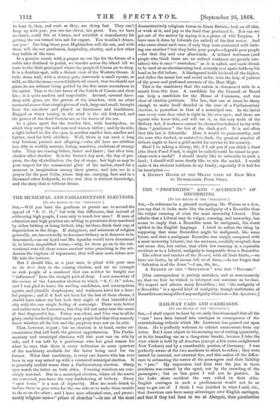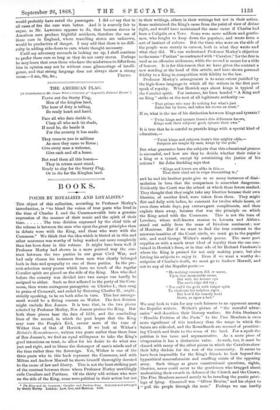RAILWAY CARS AND CARRIAGES.
[TO THE EDITOR OF TIIE "SPECTATOR."]
shall expect to hear by an early American mail that all the " cars " have been turned into carriages in consequence of the overwhelming ridicule which Mr. Lawrence has poured out upon them. He is perfectly welcome to extract amusement from my letter. But I must object to his accusing me of writing ignorantly, or to his branding me as a dangerous lunatic, because I take the view which is held by all America (except a few extra-enlightened New Yorkers) and by a considerable portion of Germany. I was perfectly aware of the two accidents to which he refers ; they were caused by internal, not external fire, and this makes all the differ- ence in estimating the terror of the passengers and their liability to "jam." My impression had been that the jam in these accidents was caused by the upset, not by the crowding of the passengers ; but on this point I will not be positive. In the Lake shore accident the cars rolled on their sides. English carriages in such a predicament would not be so easy to get out of. I think I was justified in what I said, viz., that American cars have many advantages over English carriages, and that if they had been in use at Abergele, their peculiarities would probably have saved the passengers. I did not say that in aU cases of fire the cars were better. And it is scarcely fair to argue, as Mr. Lawrence appears to do, that because stoves in American cars produce frightful accidents, therefore the use of these cars in England, where travelling stoves are unknown, would be productive of danger. I may add that there is no diffi- culty in adding side-doors to cars, where thought necessary.
Until my adversary succeeds in locking me up, I shall continue to prefer these cars so long as they do not carry stoves. Perhaps he may learn that even those who have the misfortune to differ from him in opinion may not be without some glimmerings of intelli- gence, and that strong language does not always show a strong































 Previous page
Previous page